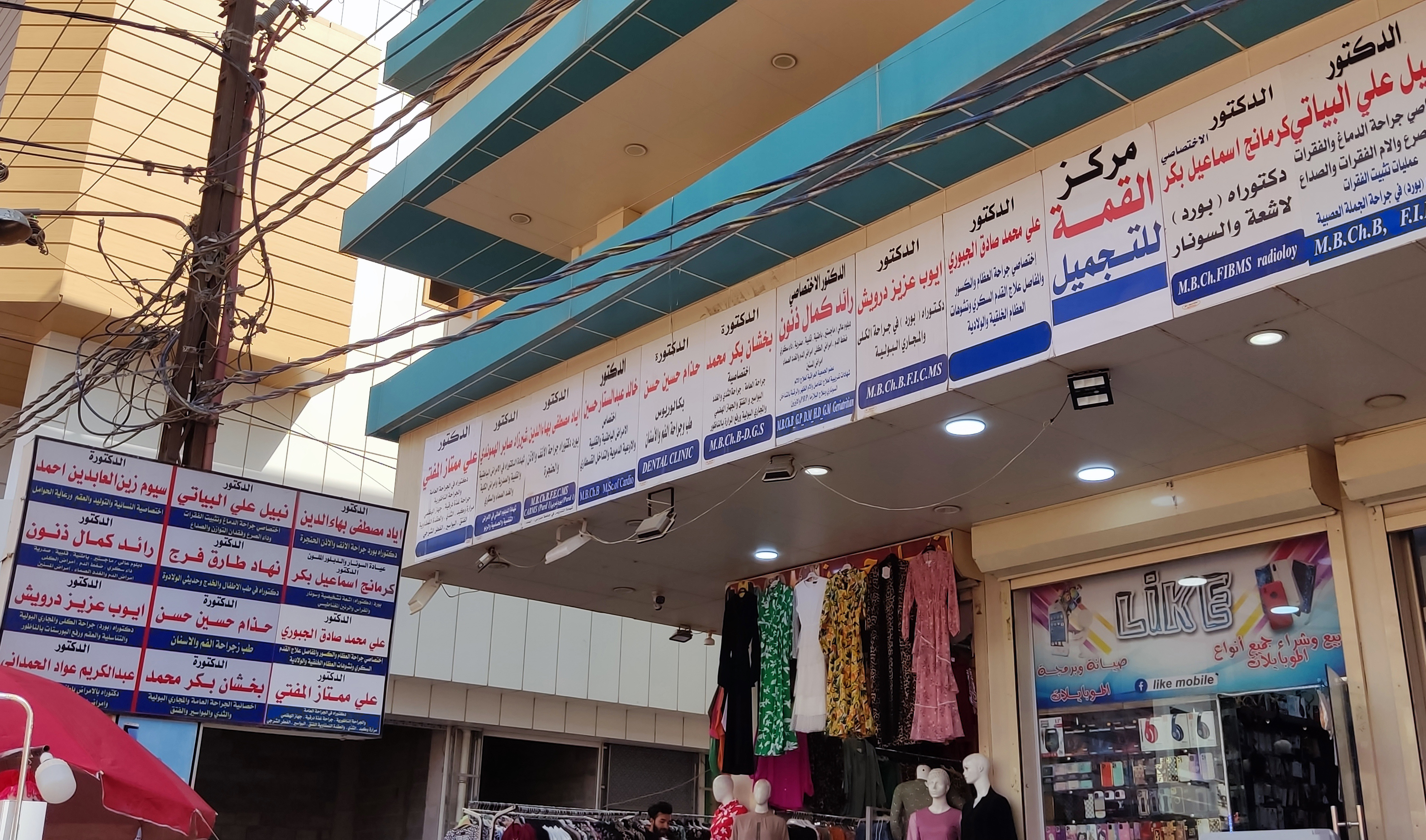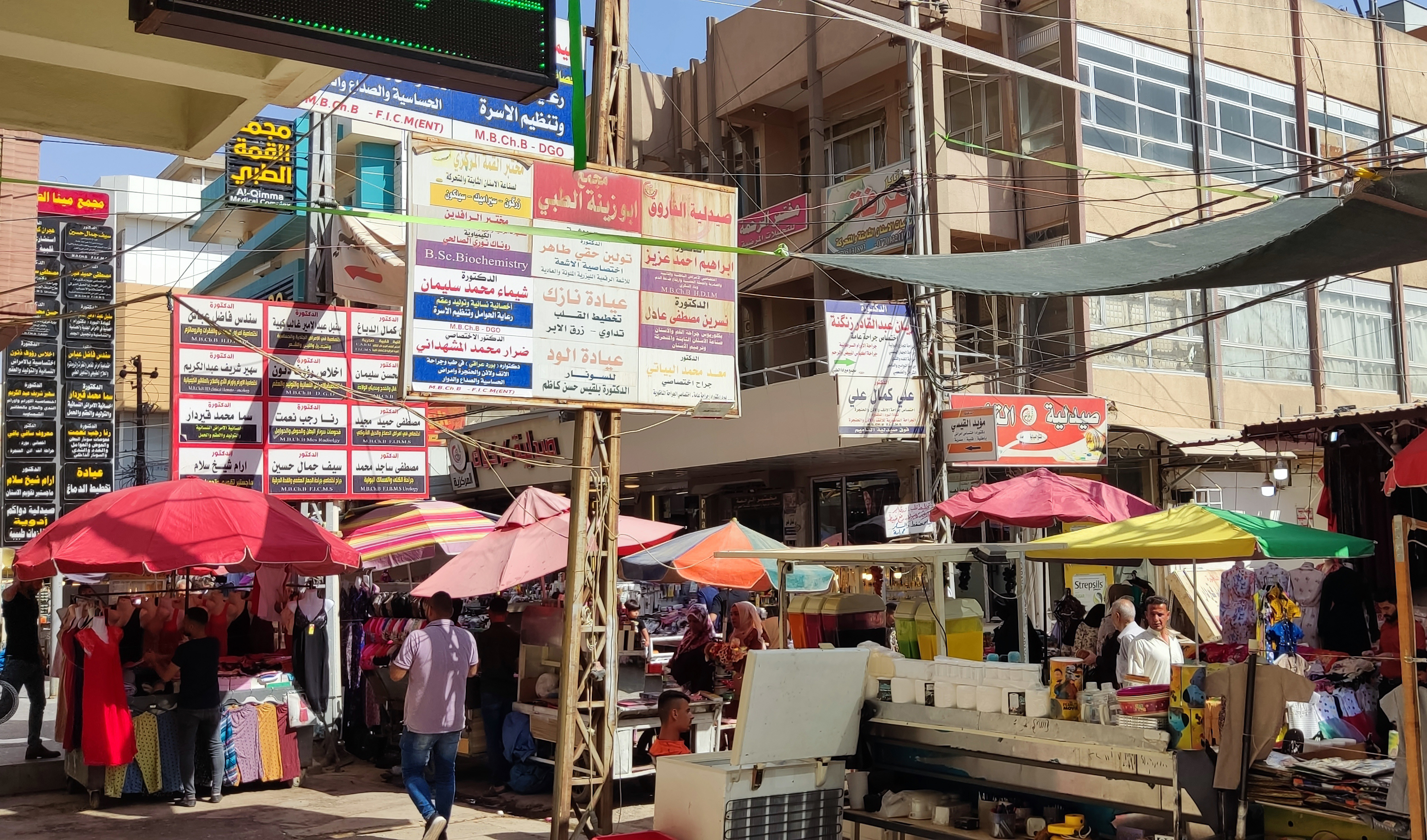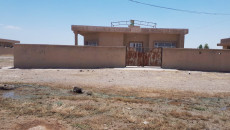Doctors in Kirkuk province are reluctant to charge their patients 40,000 Iraqi dinars IQD ($27) for medical examination in private clinics, as determined by the decisions of the Iraqi Medical Union.
The Iraqi Medical Association (IMA) has sent a letter to its Kirkuk branch dictating charges of medical examination of patients to be range between 10,000 to 40,000 dinars for testing patients in private clinics, but the Kirkuk branch of the union rejects the decision.
Dr. Walid Mohammed Ali, head of the Kirkuk branch of the IMA, told KirkukNow that they have received the circulation from Baghdad few months ago to raise examination charges from 10,000 to 40,000 dinars “but we as Kirkuk branch refused such procedure.”
The fee of examination at private clinics in Kirkuk and several Iraqi provinces has been only 15,000-25,000 IQD ($10-17) in the last ten years.
The Iraqi law allows specialist doctors to attend public hospitals and universities in the morning and have their own private clinics in the afternoons to receive patients and perform surgeries in the private hospitals.
The limited public healthcare services provided at the public hospitals has pushed the Iraqi since 2003 to look for better health services in private clinics and hospitals which charge double times higher than state hospitals marred with poor services, administration and corruption alike other public utilities in the war-torn country.

“The current price is very good, neither too much nor too little, so we hope it will not change,” said Fatima Rashid, 40s, a housewife whose husbands makes 25,000 IQD a day for working as a daily-paid worker.
“If one of our children is sick, we will have to borrow money if the prices of clinics are increased,” said Rashid, mother of three children.
There are about 800 private clinics and more than 300 hospitals and public health facilities in Kirkuk for more than 1.7 million residents, according to the doctors’ union and the federal government’s Central Statistics Agency.
We will have to borrow money to visit the doctor if the prices of clinics are increased
Iraq’s healthcare system which was once one of the modern and efficient services in the region now is in serious crisis. There’s a shortage of drugs and the medical staff to administer it.
Over the past three decades the country has been ravaged by Iraqi-Iran war, Saddam Hussein’s invasion of Kuwait, ousting of Saddam regime followed by sectarian violence, the war against al-Qaeda and the rise of Islamic State in Iraq and Syria ISIS.
The political chaos after 2003, pushed an estimated 15,000 out of 52,000 registered Iraqi doctors to leave the country. The young student doctors primarily seek training and life abroad rather than permanent state employment.
“It is true that we have the right to increase the price of seeing patients like other Iraqi provinces, but I am not ready to increase the price,” said Dr. Runak Ali, a gynecologist from Kirkuk, who checks the impoverished and families of martyrs free of charge a day in the week.
Dr. Ronak says she has also agreed with some laboratories to help anyone holds a prescription from her clinic to be tested at half the price.
The headquarters of the IMA issued a statement late April saying the price of medical examination will be 10,000 to 40,000 IQD, according to the age of doctors, specialty, experience and certificates.
Video: Faiza Khatab, volunteer pediatrician, treats patients free of charge at a charity clinic in Kirkuk
The doctors' union in Kirkuk has over 1,400 members and they decide to receive 40,000 dinars or less.
The head of the Kirkuk branch of the union says that there are several doctors who have devoted one or two days a week to see patients free of charge.
"Unlike Kirkuk, there are doctors in some provinces who have increased the price of seeing patients in their clinics up to 75,000 IQD, but we assure citizens that we will not increase the price," he added.
There are more than 1,400 doctors in Kirkuk, including 433 dentists and 462 pharmacists, according to the Central Statistics Agency for 2018.
In 2019, the Iraqi government allocated just 2.5% of the state’s $106.5 billion budget to its health ministry, while security forces received 18% and the oil ministry 13.5%.
Over the past decade, data from the World Health Organization WHO shows, Iraq’s central government has consistently spent far less per capita on healthcare than its much poorer neighbors - $161 per citizen each year on average, compared to Jordan’s $304 and Lebanon’s $649, a report by Reuters found.






